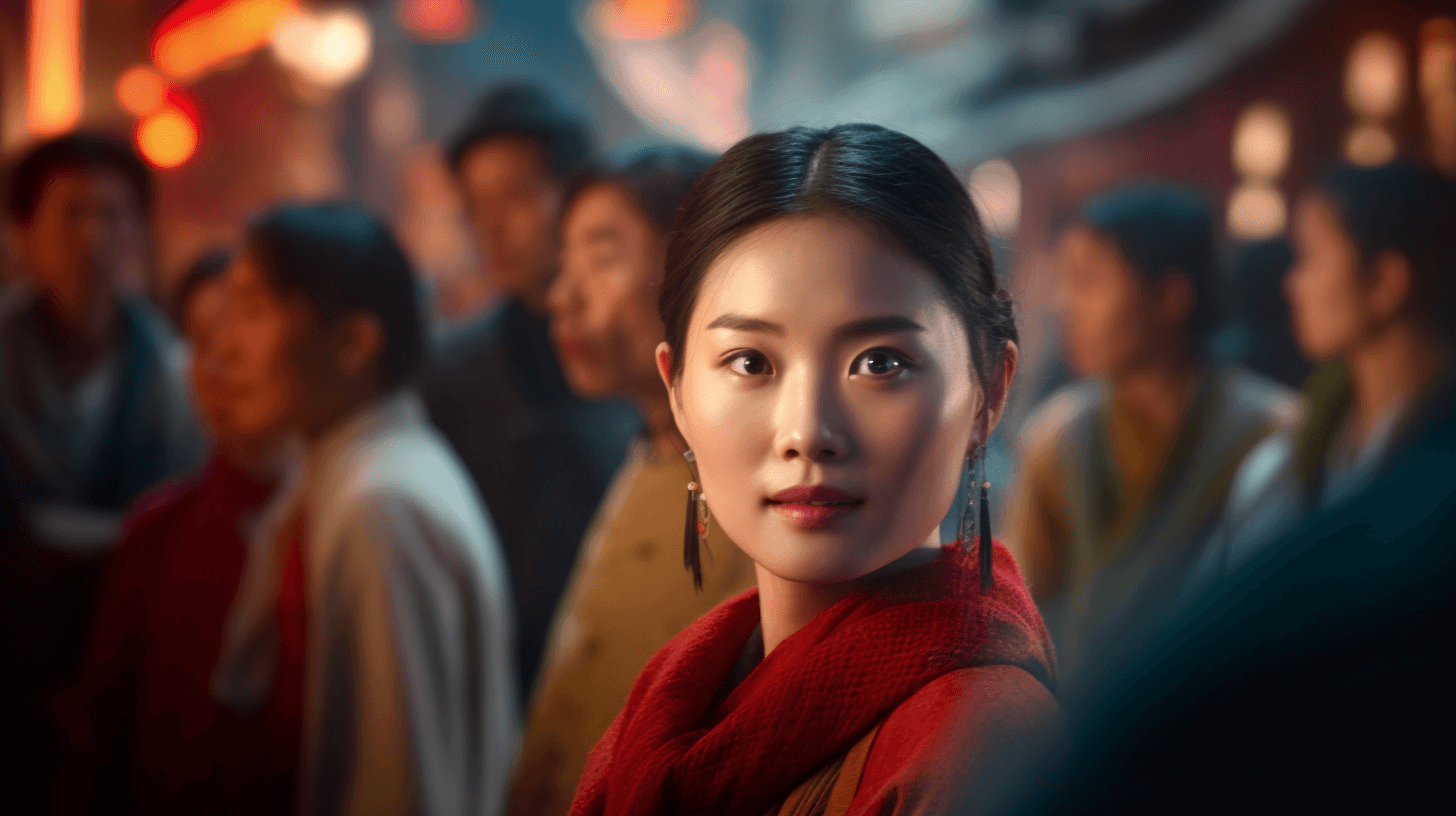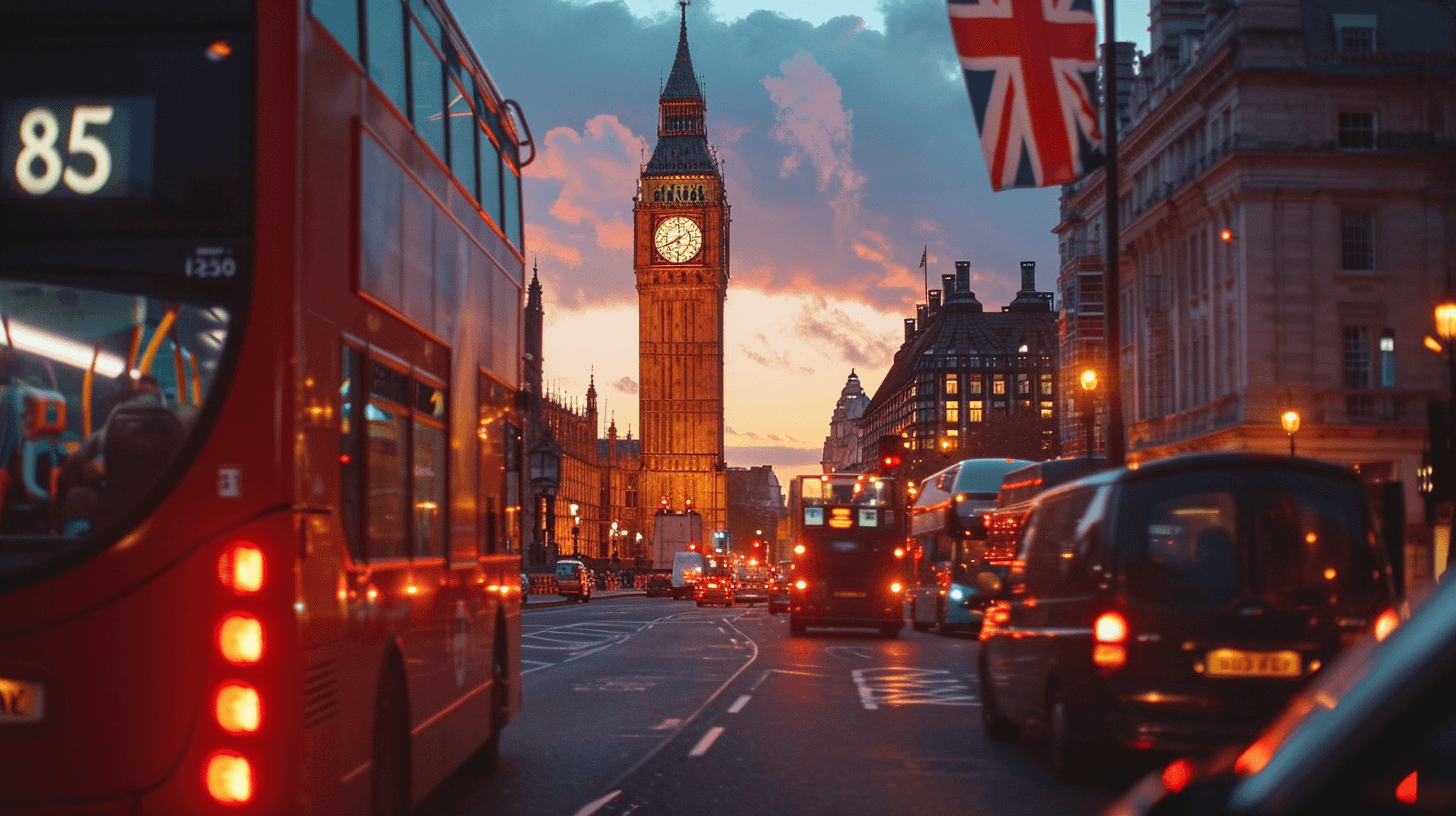🎭🇨🇳🔍Eh, China Making Da Spotlight Shine on Top Culture, But Da Show Not Goin’ On, Brah
Last week, plenny performances wen kaput all ovah China afta Beijing wen start looking into one stand-up comedian. 🎤🔎 Da cancellations wen make waves across da country. Had one Japanese choral band on tour, stand-up comedy shows in plenny cities, and even jazz shows in Beijing. 😲🎶
Just before da shows wen get cut, Beijing wen fine one Chinese comedy studio about $2 million, all cause one stand-up comedian wen insult da Chinese military in one joke. Da cops in northern China even wen hold one wahine who wen defend da comedian online. 🎭💰👮♂️🖥️
Da kine penalties, and da sudden wave of cancellations afta dat, showing how much more da Chinese creative landscape getting da stink eye. 🎨📖👁️🇨🇳 China’s main man, Xi Jinping, been making art and culture one big target for ideological hammering down, telling artists fo’ align their creative dreams with Chinese Communist Party goals and promote one nationalistic vision of Chinese identity. Performers gotta submit their scripts or set lists for checking, and publications being closely watched. 🎭📝🇨🇳🔍
On Tuesday, Mr. Xi wen send one letter to da National Art Museum of China for its 60th birthday, reminding da staff fo’ “stick to da correct political direction.” 🎨🖼️🎉📬
Mr. Xi’s focus on the arts is also part of a broader worry about national security and getting rid of da kine foreign influence dat he think is bad. In recent weeks, the authorities have been raiding the offices of several Western consulting or advisory companies based in China, and making more behaviors fall under counterespionage laws. 🇨🇳🔍🕵️♂️
Plenny of da canceled events was supposed to feature foreign performers or speakers.
Beijing’s relationship with da West been getting worse, so it’s no surprise dat it looking more into the cultural side to maintain power at home, says Zhang Ping, who used to be a journalist and political commentator in China and now lives in Germany. 🇨🇳👀🎭🌍
“One way to respond to anxiety about power is to increase control,” says Mr. Zhang, who writes under the pen name Chang Ping. “Dictatorships always like control people’s entertainment, speech, laughter, and tears.” 📝🎭😂😢
While the party has long been regulating the arts — one target of the Cultural Revolution was creative work dat wasn’t “revolutionary” enough — the pressure has increased under Mr. Xi. In 2021, a state-backed performing arts association published a list of morality guidelines for artists, which included prescriptions for patriotism. The same year, the government banned “sissy men” from appearing on television, accusing them of weakening the nation. 🇨🇳🎭🚫📺
Officials have also been noticing stand-up comedy, which has been getting more popular and offered a rare medium for limited jokes about life in contemporary China. The government fined a comedian for making jokes about last year’s coronavirus lockdown in Shanghai. People’s Daily, the Communist Party mouthpiece, published a commentary in November that said jokes had to be “moderate” and noted that stand-up as an art form was a foreign import; the Chinese name for stand-up, “tuo kou xiu,” is itself a transliteration from “talk show.” 🎭😷🔍
The recent crackdown started after an anonymous social media user complained about a set that a popular stand-up comedian, Li Haoshi, performed in Beijing on May 13. Mr. Li, who uses the stage name House, had said that watching his two adopted stray dogs chase a squirrel reminded him of a Chinese military slogan: “Maintain exemplary conduct, fight to win.” The user suggested that Mr. Li had slanderously compared soldiers to wild dogs. 🐕🎭🇨🇳
Outrage grew among nationalist social media users, and the authorities quickly piled on. In addition to fining Xiaoguo Culture Media, the firm that manages Mr. Li, the authorities — who said the joke had a “vile societal impact” — indefinitely suspended the company’s performances in Beijing and Shanghai. Xiaoguo fired Mr. Li, and the Beijing police said they were investigating him. 🇨🇳💰🎭👮♂️
Within hours of the penalty being announced on Wednesday, organizers of stand-up shows in Shanghai, Beijing, Shenzhen and eastern Shandong Province canceled their performances. A few days later, Chinese social media platforms suspended the accounts of Uncle Roger, a Britain-based Malaysian comic whose real name is Nigel Ng; Mr. Ng had posted a video poking fun at the Chinese government on Twitter (which is banned in mainland China). 🎭🚫🇨🇳
But the apparent fallout was not limited to comedy. Scheduled musical performances began disappearing, too, including a stop in southern China by a Shanghai rock band that includes foreign members, a Beijing folk music festival and several jazz performances, and a Canadian rapper’s show in the southern city of Changsha. 🎸🎤🎼🚫
The frontman of a Buddhist-influenced Japanese chorus group, Kissaquo, said last Wednesday that his concert that night in the southern city of Guangzhou had been canceled. Hours later, the frontman, Kanho Yakushiji, said a performance in Hangzhou, in eastern China, had been canceled, too. And the next day, he announced that Beijing and Shanghai shows had also been called off. 🎶🇯🇵🚫🇨🇳
“I was writing a set list, but I stopped in the middle,” Mr. Yakushiji, whose management company did not respond to a request for comment, wrote on his Facebook page. “I still don’t understand what the meaning of all this is. I have nothing but regrets.” 🎤💔📝🚫
Organizers’ announcements for nearly all of the canceled events cited “force majeure,” a term that means circumstances beyond one’s control — and, in China, has often been used as shorthand for government pressure. 🚫🎭🇨🇳
Stand-up show organizers did not return requests for comment. Several organizers of canceled musical performances denied that they had been told not to feature foreigners. An employee at a Nanjing music venue that canceled a tribute to the Japanese composer Ryuichi Sakamoto said not enough tickets had been sold. 🎟️🎵🚫🇨🇳
Some of the foreign musicians whose shows were canceled have since been able to perform in other cities or at other venues.
But a foreign musician in Beijing, who asked to remain anonymous for fear of retaliation, said his band was scheduled to play at a bar on Sunday and was told by the venue several days before that the gig was canceled because featuring foreigners would bring trouble. 🎵🚫🍻🇨🇳
Lynette Ong, a professor of Chinese politics at the University of Toronto, said it was unlikely that the central government had issued direct instructions to spur the recent cultural crackdowns. Local governments or venue owners, conscious of how the political environment had changed, were likely being especially cautious, she said. 🎓🇨🇳📚
In Xi’s China, people are so scared and fearful that they become extremely risk-averse,” she said. “Overall, it’s a very paranoid party.” 🇨🇳😱
In the past, when nationalism has gone to extremes, or local officials overzealously enforced the rules, the central government would eventually step in to cool down the rhetoric, in part to preserve economic or diplomatic relationships. But Professor Ong said Beijing’s current emphasis on security above all would give it no reason to intervene here. 🇨🇳🔍🌍
“If people don’t watch comedy, there’s no loss for the party,” she said. 🎭🚫🇨🇳🎉
NOW IN ENGLISH
🎭🇨🇳🔍 Hey, China’s Putting the Spotlight on Culture, But the Show Isn’t Going On, Buddy
Last week, numerous performances were canceled all over China following an investigation into a stand-up comedian by Beijing. 🎤🔎 The cancellations reverberated across the nation. These included a Japanese choral band on tour, stand-up comedy shows in several cities, and even jazz shows in Beijing. 😲🎶
Just before the shows were axed, Beijing levied a fine of about $2 million on a Chinese comedy studio, all because a stand-up comedian allegedly insulted the Chinese military in a joke. The police in northern China even detained a woman who defended the comedian online. 🎭💰👮♂️🖥️
The punitive measures, and the sudden wave of cancellations that followed, indicate how intensely the Chinese creative landscape is being scrutinized. 🎨📖👁️🇨🇳 China’s leader, Xi Jinping, has been making art and culture a significant target for ideological crackdown, instructing artists to align their creative aspirations with Chinese Communist Party goals and promote a nationalistic vision of Chinese identity. Performers must submit their scripts or set lists for review, and publications are being closely watched. 🎭📝🇨🇳🔍
On Tuesday, Mr. Xi sent a letter to the National Art Museum of China on its 60th anniversary, reminding the staff to “stick to the correct political direction.” 🎨🖼️🎉📬
Mr. Xi’s focus on the arts is also part of a broader concern about national security and eliminating the foreign influence he perceives as harmful. In recent weeks, authorities have been raiding the offices of several Western consulting or advisory companies based in China, and expanding the scope of behaviors covered by counterespionage laws. 🇨🇳🔍🕵️♂️
Many of the canceled events were meant to feature foreign performers or speakers.
Beijing’s relationship with the West has been deteriorating, so it’s unsurprising that it’s scrutinizing culture more closely to maintain power at home, says Zhang Ping, a former journalist and political commentator in China now residing in Germany. 🇨🇳👀🎭🌍
“One way to respond to anxiety about power is to increase control,” says Mr. Zhang, who writes under the pen name Chang Ping. “Dictatorships always like to control people’s entertainment, speech, laughter, and tears.” 📝🎭😂😢
While the party has long regulated the arts — a target of the Cultural Revolution was creative work deemed insufficiently “revolutionary” — the pressure has intensified under Mr. Xi. In 2021, a state-backed performing arts association published a list of morality guidelines for artists, which included prescriptions for patriotism. That same year, the government banned “sissy men” from appearing on television, accusing them of weakening the nation. 🇨🇳🎭🚫📺
Officials have also taken notice of stand-up comedy, which has been growing in popularity and offered a rare medium for limited jokes about life in contemporary China. The government fined a comedian for making jokes about last year’s coronavirus lockdown in Shanghai. People’s Daily, the Communist Party mouthpiece, published a commentary in November that said jokes had to be “moderate” and pointed out that stand-up as an art form was a foreign import; the Chinese name for stand-up, “tuo kou xiu,” is itself a transliteration from “talk show.” 🎭😷🔍
The recent crackdown started after an anonymous social media user complained about a set that a popular stand-up comedian, Li Haoshi, performed in Beijing on May 13. Mr. Li, who goes by the stage name House, had said that watching his two adopted stray dogs chase a squirrel reminded him of a Chinese military slogan: “Maintain exemplary conduct, fight to win.” The user suggested that Mr. Li had slanderously compared soldiers to wild dogs. 🐕🎭🇨🇳
Outrage grew among nationalist social media users, and the authorities quickly piled on. In addition to fining Xiaoguo Culture Media, the firm that manages Mr. Li, the authorities — who said the joke had a “vile societal impact” — indefinitely suspended the company’s performances in Beijing and Shanghai. Xiaoguo fired Mr. Li, and the Beijing police announced they were investigating him. 🇨🇳💰🎭👮♂️
Within hours of the penalty being announced on Wednesday, organizers of stand-up shows in Shanghai, Beijing, Shenzhen, and eastern Shandong Province canceled their performances. A few days later, Chinese social media platforms suspended the accounts of Uncle Roger, a Britain-based Malaysian comic whose real name is Nigel Ng; Mr. Ng had posted a video mocking the Chinese government on Twitter (which is banned in mainland China). 🎭🚫🇨🇳
But the apparent fallout was not limited to comedy. Scheduled musical performances started disappearing as well, including a gig in southern China by a Shanghai rock band that includes foreign members, a Beijing folk music festival, several jazz performances, and a Canadian rapper’s show in the southern city of Changsha. 🎸🎤🎼🚫
The lead singer of a Buddhist-influenced Japanese choral group, Kissaquo, announced last Wednesday that his concert that night in the southern city of Guangzhou had been canceled. Hours later, the lead singer, Kanho Yakushiji, said a performance in Hangzhou, in eastern China, had also been canceled. And the next day, he announced that Beijing and Shanghai shows had also been canceled. 🎶🇯🇵🚫🇨🇳
“I was writing a set list, but I stopped in the middle,” Mr. Yakushiji, whose management company did not respond to a request for comment, wrote on his Facebook page. “I still don’t understand what the meaning of all this is. I have nothing but regrets.” 🎤💔📝🚫
Organizers’ announcements for nearly all of the canceled events cited “force majeure,” a term that refers to circumstances beyond one’s control — and, in China, has often been used as a shorthand for government pressure. 🚫🎭🇨🇳
Organizers of the stand-up shows did not respond to requests for comment. Several organizers of the canceled musical events denied that they had been told not to feature foreigners. An employee at a Nanjing music venue that canceled a tribute to Japanese composer Ryuichi Sakamoto said not enough tickets had been sold. 🎟️🎵🚫🇨🇳
Some of the foreign musicians whose shows were canceled have since managed to perform in other cities or at different venues.
However, a foreign musician in Beijing, who requested anonymity for fear of backlash, said his band was scheduled to play at a bar on Sunday and was informed by the venue several days prior that the gig was canceled because featuring foreigners would cause problems. 🎵🚫🍻🇨🇳
Lynette Ong, a professor of Chinese politics at the University of Toronto, said it was unlikely that the central government had issued direct orders for the recent cultural clampdowns. Local governments or venue owners, mindful of the changing political climate, were likely being exceptionally cautious, she said. 🎓🇨🇳📚
“In Xi’s China, people are so intimidated and anxious that they become extremely risk-averse,” she said. “Overall, it’s a very paranoid party.” 🇨🇳😱
In the past, when nationalism has gone to extremes, or local officials have enforced the rules overzealously, the central government would eventually step in to temper the rhetoric, in part to preserve economic or diplomatic relationships. However, Professor Ong said Beijing’s current emphasis on security above all else would provide no reason for it to intervene here. 🇨🇳🔍🌍
“If people don’t watch comedy, there’s no loss for the party,” she said. 🎭🚫🇨🇳🎉







